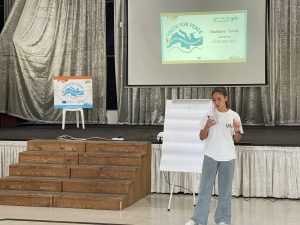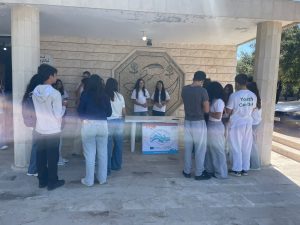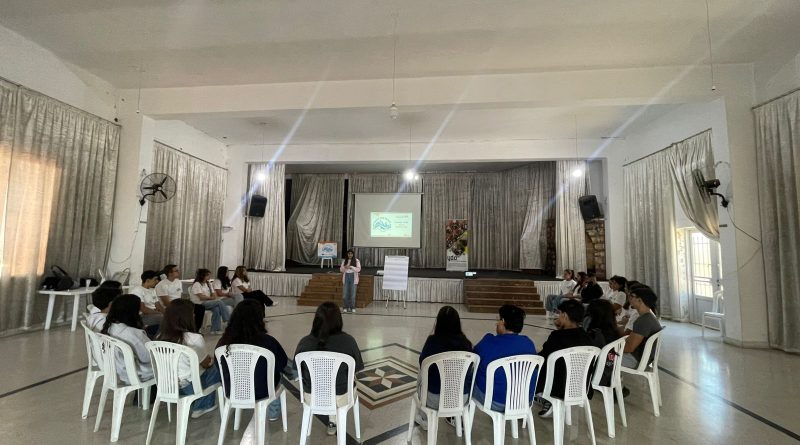MULTIPLIER EVENT – YOUTH DEVELOPMENT ORGANIZATION (YDO)
As part of the Youth for Peace in the Mediterranean Sea project, the Youth Development Organization (YDO) held its national Multiplier Event on 11 October 2025 at the Batloun Club in Mount Lebanon. The gathering served as both a celebration and a moment of reflection, marking one of the final dissemination milestones of the Erasmus+ project before its official closing.

The event highlighted the main achievements of Youth for Peace, bringing together youth, educators, parents, and community stakeholders to share outcomes and learnings.
One of the most anticipated moments of the day was the official launch of the Peace Education Manual (Dossier) a core intellectual output of the project. The manual, alongside other practical tools developed during the initiative, was presented as a set of resources to support educators and empower young people in peacebuilding work.
Participants also enjoyed the screening of the Youth for Peace Video Contest winners, which showcased the creativity, diversity, and vision of young filmmakers from the region. Their short films provided fresh perspectives on dialogue, coexistence, and non-violence, leaving a strong impression on all attendees.

Throughout the day, YDO volunteers and social workers led interactive sessions using some of the tools developed in the project. These hands-on activities encouraged participants to explore methods for conflict resolution, active listening, and intercultural understanding all key elements of the project’s educational philosophy.
The event brought together 41 participants, including 26 women and 15 men, with the majority aged between 18 and 30 years old, alongside several younger participants aged under 18.
The audience reflected a rich mix of local stakeholders:
- Youth workers and volunteers from YDO and Batloun Club.
- Parents of young participants involved in the project.
- Community leaders and local partners, including Marwan Kais, a key supporter who contributed to outreach and coordination efforts in the village.
This mix of profiles created a dynamic exchange between generations and institutions, strengthening the local community’s connection to the project’s mission.
During the closing session, participants shared enthusiastic and positive feedback about the project’s relevance and long-term value. Many highlighted how the Peace Education Manual and the project’s other materials could be used to enrich training programmes, youth clubs, and school activities.
The video contest screenings received special praise for inspiring new ideas and for showing the diversity of youth-led approaches to peace and inclusion across the Mediterranean. Participants expressed pride in contributing to a regional initiative that promotes cooperation, empathy, and civic engagement.
Overall, the feedback confirmed that the project’s objectives promoting youth participation, intercultural dialogue, and collaboration had been successfully achieved.
Erasmus+ visibility was integrated into every aspect of the event. The Erasmus+ logo and project branding appeared on all banners, posters, certificates, and presentation slides.
During the opening speeches, organisers and speakers emphasised the importance of the Erasmus+ Programme in empowering youth, encouraging cross-border cooperation, and supporting non-formal education for peace.

